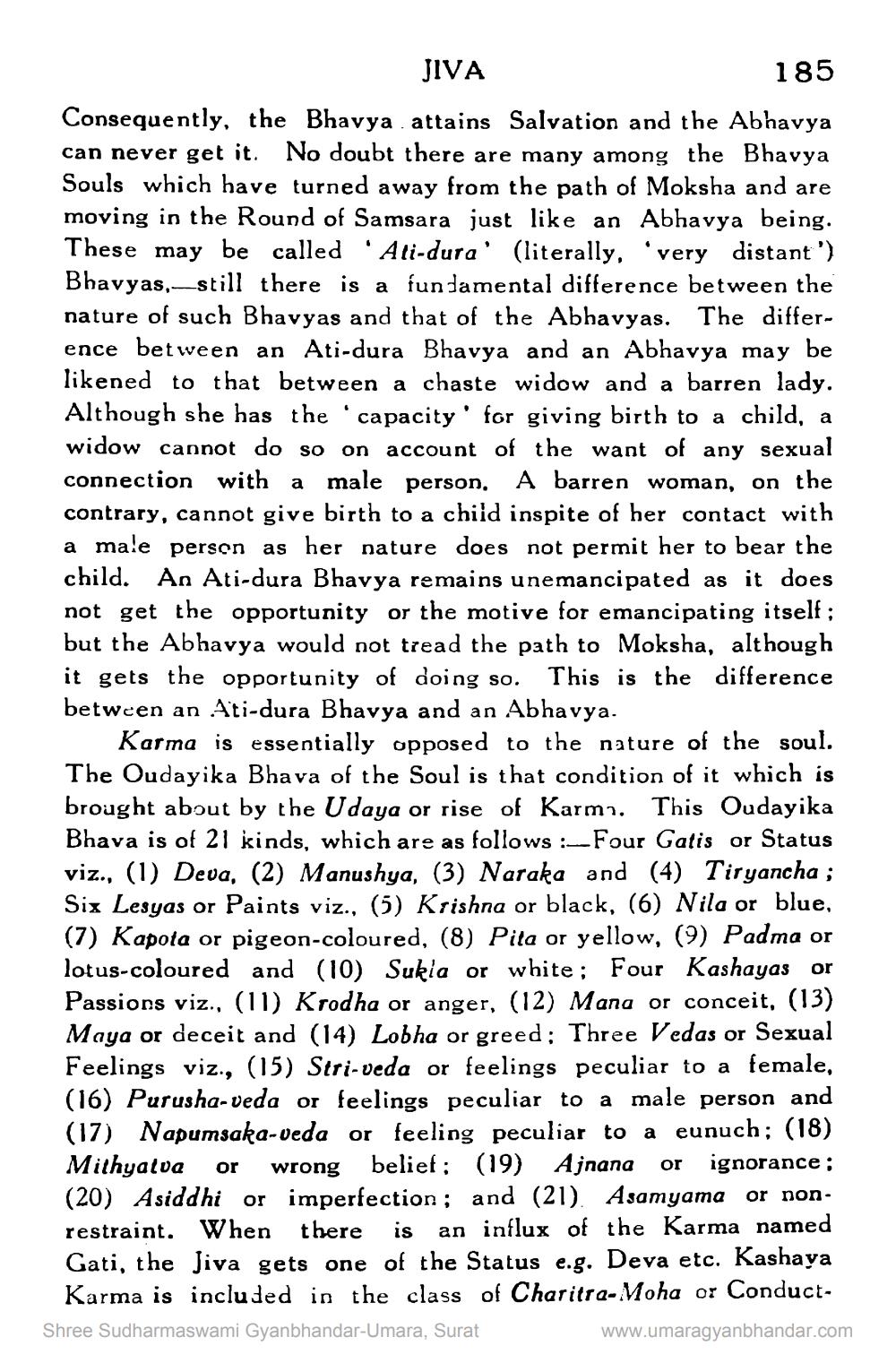________________
JIVA
185 Consequently, the Bhavya . attains Salvation and the Abhavya can never get it. No doubt there are many among the Bhavya Souls which have turned away from the path of Moksha and are moving in the Round of Samsara just like an Abhavya being. These may be called 'Ali-dura' (literally, 'very distant') Bhavyas.-still there is a fundamental difference between the nature of such Bhavyas and that of the Abhavyas. The difference between an Ati-dura Bhavya and an Abhavya may be likened to that between a chaste widow and a barren lady. Although she has the capacity' for giving birth to a child, a widow cannot do so on account of the want of any sexual connection with a male person. A barren woman, on the contrary, cannot give birth to a child inspite of her contact with a male person as her nature does not permit her to bear the child. An Ati-dura Bhavya remains unemancipated as it does not get the opportunity or the motive for emancipating itself ; but the Abhavya would not tread the path to Moksha, although it gets the opportunity of doing so. This is the difference between an Ati-dura Bhavya and an Abhavya.
Karma is essentially opposed to the nature of the soul. The Oudayika Bhava of the Soul is that condition of it which is brought about by the Udaya or rise of Karmi. This Oudayika Bhava is of 21 kinds, which are as follows :-Four Gatis or Status viz., (1) Deva, (2) Manushya, (3) Naraka and (4) Tiryancha ; Six Lesyas or Paints viz., (5) Krishna or black, (6) Nila or blue, (7) Kapota or pigeon-coloured, (8) Pita or yellow, (9) Padma or lotus-coloured and (10) Sukla or white; Four Kashayas or Passions viz., (11) Krodha or anger, (12) Mana or conceit, (13) Maya or deceit and (14) Lobha or greed: Three Vedas or Sexual Feelings viz., (15) Stri-veda or feelings peculiar to a female, (16) Purusha-veda or feelings peculiar to a male person and (17) Napumsaka-veda or feeling peculiar to a eunuch; (18) Mithyalva or wrong belief; (19) Ajnana or ignorance ; (20) Asiddhi or imperfection; and (21). Asamyama or nonrestraint. When there is an influx of the Karma named Gati, the Jiva gets one of the Status e.g. Deva etc. Kashaya
Karma is included in the class of Charitra-Moha or ConductShree Sudharmaswami Gyanbhandar-Umara, Surat
www.umaragyanbhandar.com




